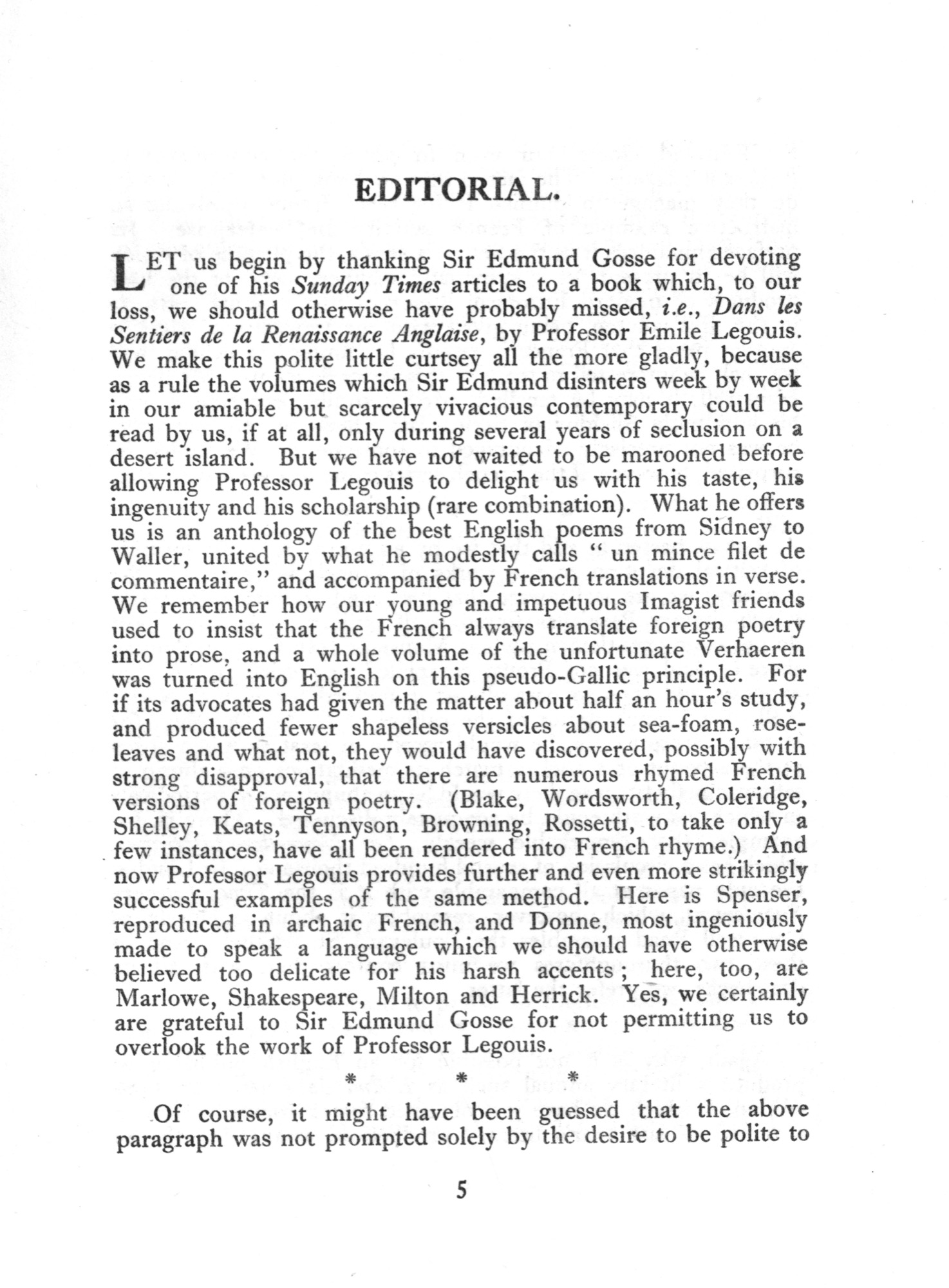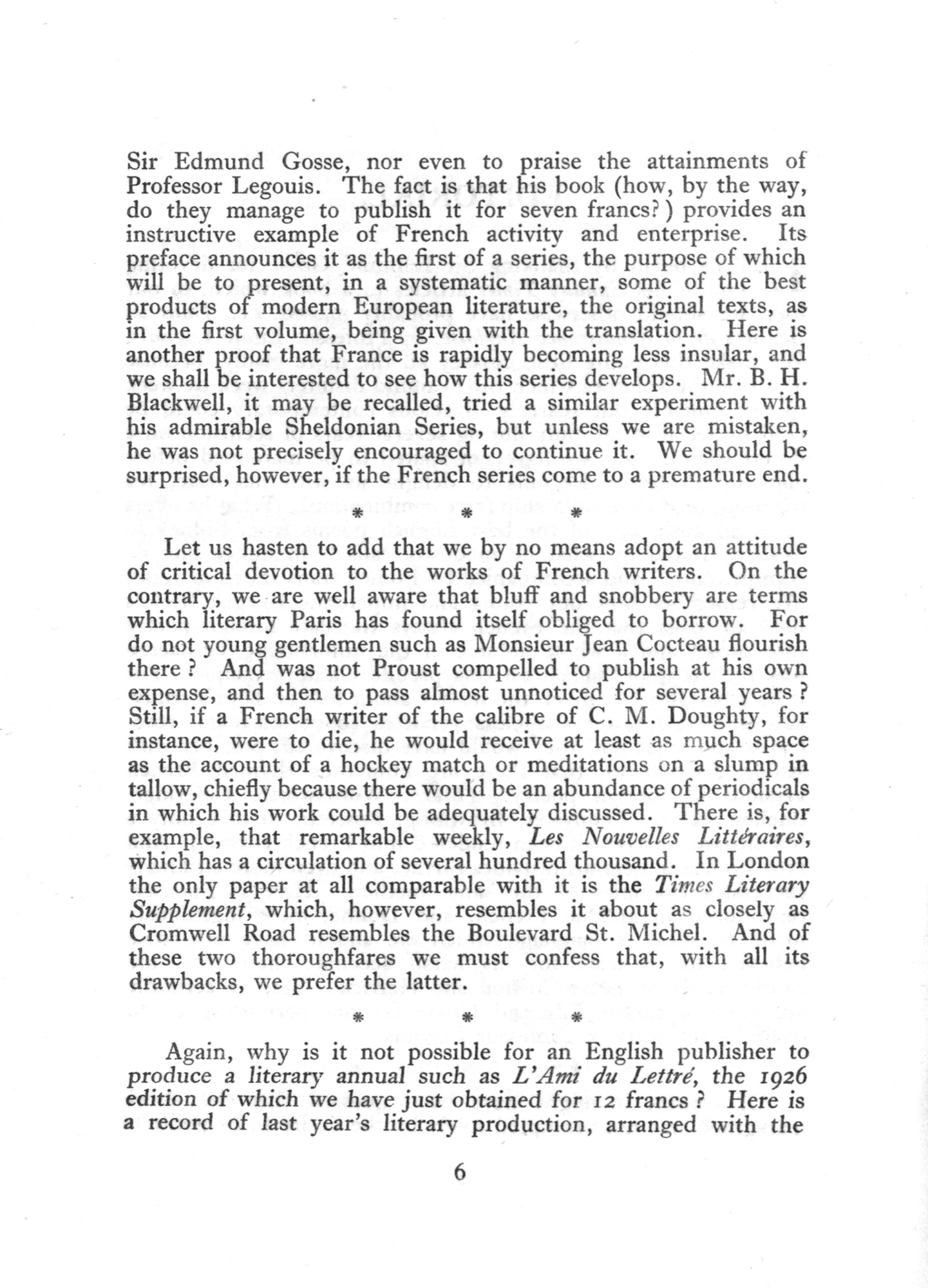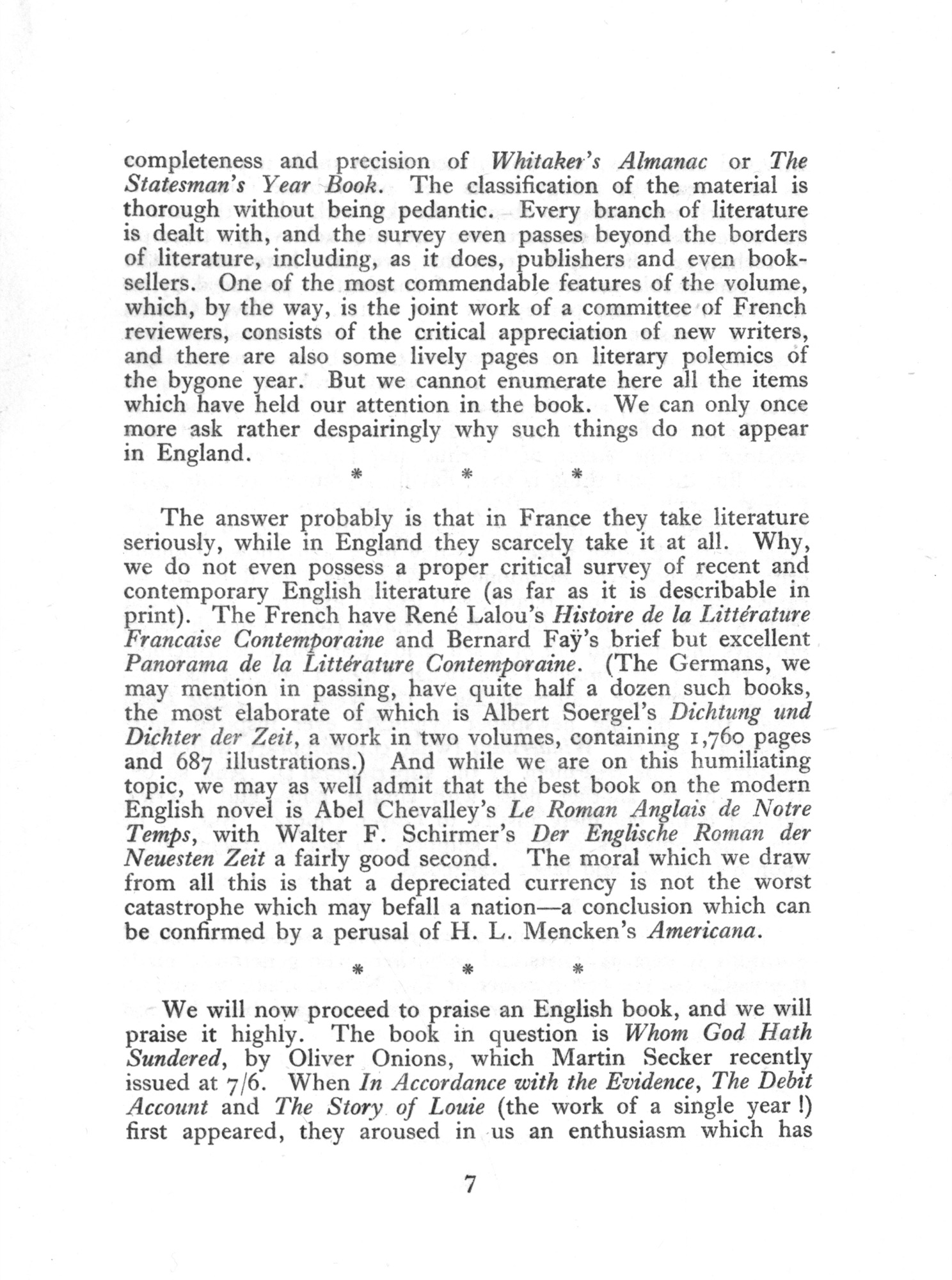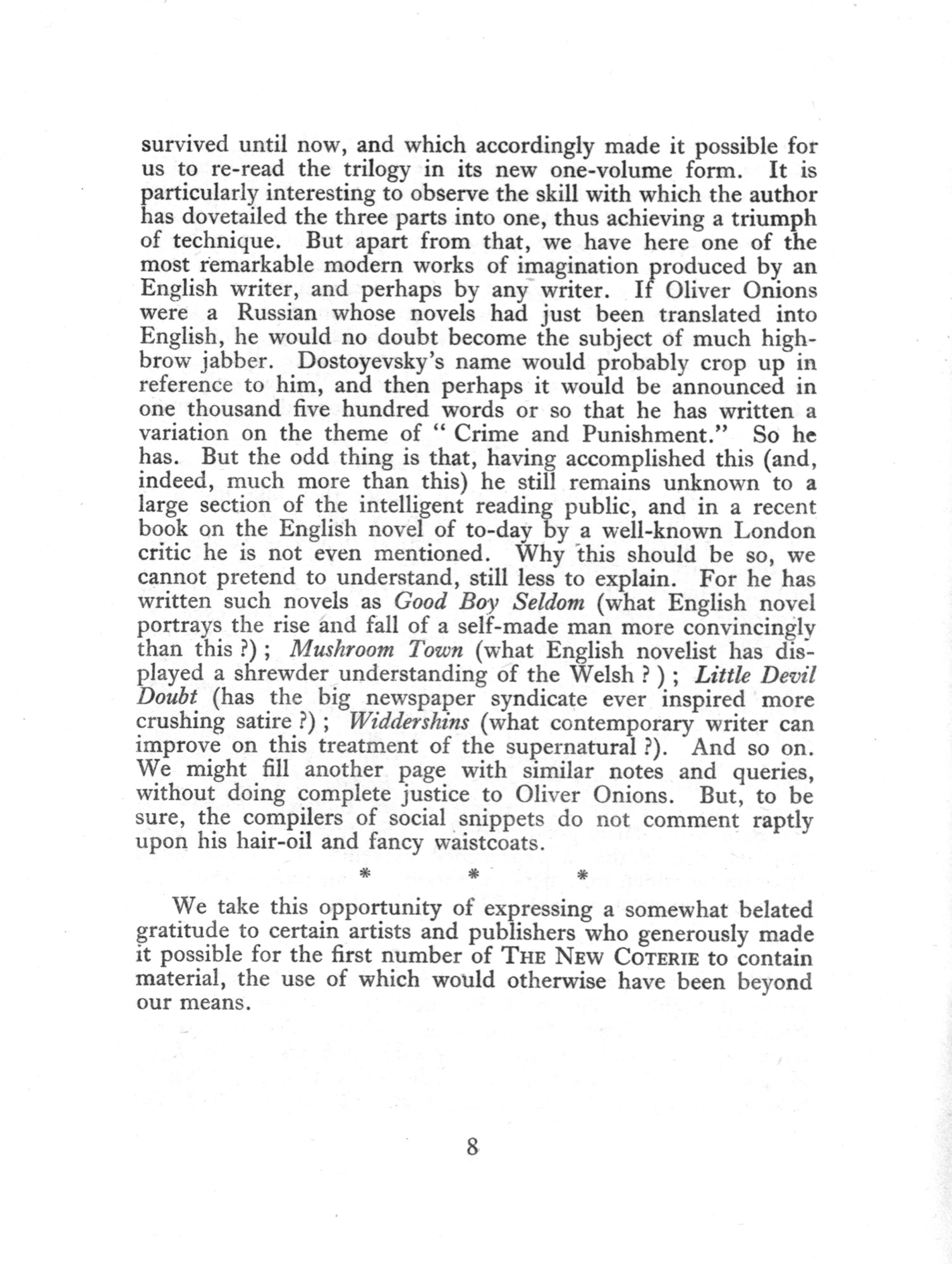2 of
You are browsing the full text of the article: Editorial
Click here to go back to the list of articles for
Issue:
Volume: 1 of The New Coterie
| The New Coterie Volume 1 Issue: 2 Spring 1926 Page: 5 | ||||||||||||||||||||||||||||||
| Editorial | ||||||||||||||||||||||||||||||
|

|
|
||||||||||||||||||||||||||||
| The New Coterie Volume 1 Issue: 2 Spring 1926 Page: 6 | ||||||||||||||||||||||||||
| Editorial | ||||||||||||||||||||||||||
|

|
|
||||||||||||||||||||||||
| The New Coterie Volume 1 Issue: 2 Spring 1926 Page: 7 | ||||||||||||||||||||||||||
| Editorial | ||||||||||||||||||||||||||
|

|
|
||||||||||||||||||||||||
| The New Coterie Volume 1 Issue: 2 Spring 1926 Page: 8 | ||||||||||||||||||||||||||
| Editorial | ||||||||||||||||||||||||||
|

|
|
||||||||||||||||||||||||



